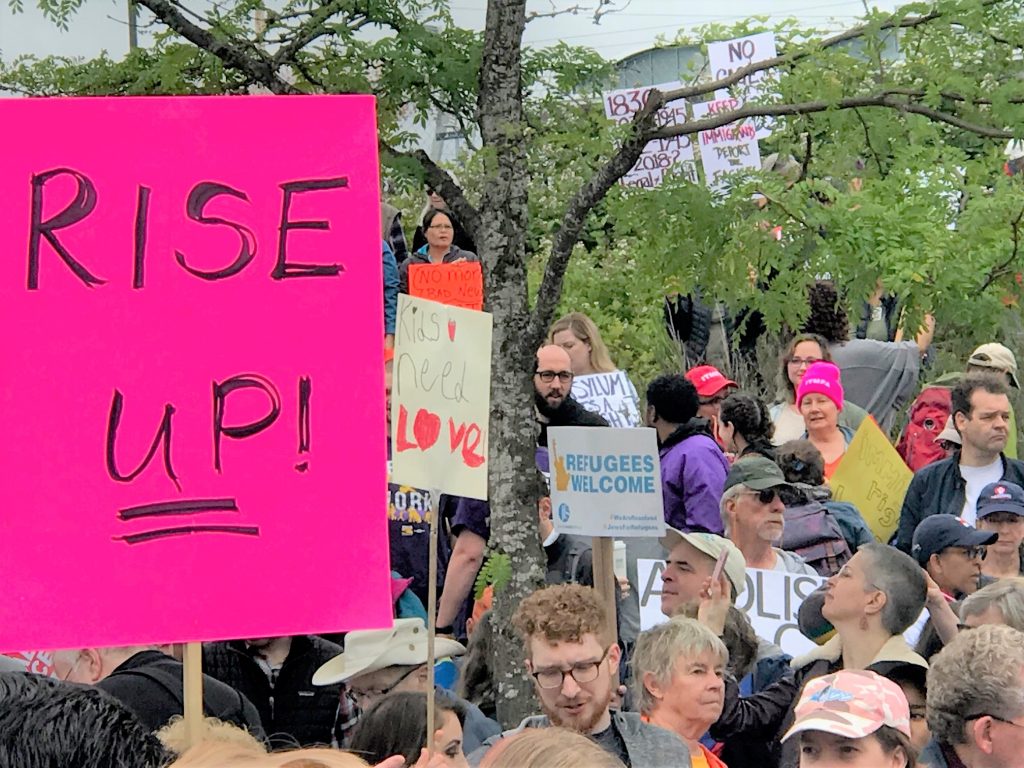
If you’ve been feeling despondent, like there’s no hope or light left and democracy is dying a fast death and there’s nothing we can do about it, you’re not alone. If you’re also feeling guilty for not being able to muster the energy to fight, I can’t blame you, because I’m there with you. I was barely able to summon the energy to attend the Families Belong Together rally last Saturday.
I went with my five-year-old and some friends and their kids though, and I’m glad I did.
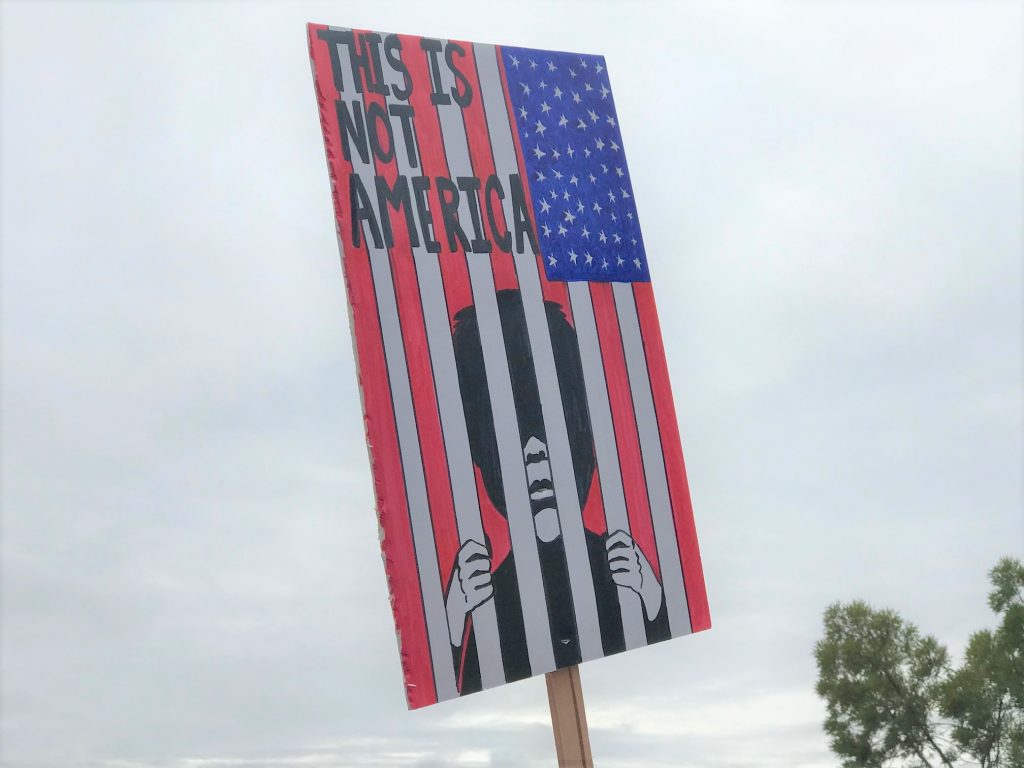
I know it has been tough on many of us. With pervasive fear and exhaustion, it gets harder to see what is good about the world. But injustice depends on our forgetting that good exists. Hatred depends on our forgetting that love and community exist. Darkness depends on our forgetting that light exists. But I saw all these things at the rally—love, community, humanity, kindness—and I see them every day in my work and everywhere I go. Despite our anger, fear, and sadness, let’s remind ourselves of a few hopeful things, all of which nonprofits have played a significant role in:
1. The world continues to make significant progress: The news make it seem like it’s all bad, all the time, when there is actually tremendous progress across the globe. Here’s an optimistic article listing ten ways the world has gotten better. It includes global poverty going doing down (from 50% in 1950 to 10% today); literacy rates have increased from 36% to 83%; homicides and motor vehicle deaths have decreased; clean energy is getting cheaper and more accessible; more countries are becoming democratic; racist, sexist, and homophobic attitudes are in decline; school bullying is down; people are working less and earning more.
2. There are always more people fighting on the right side of history: Across the US last
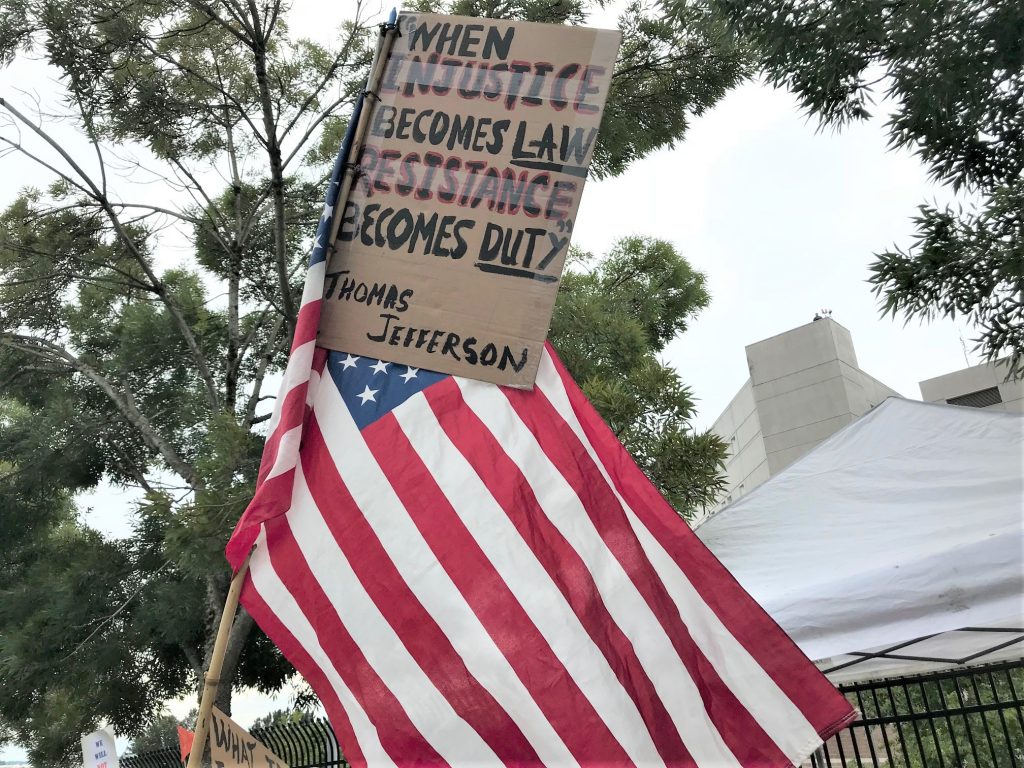
“Since 2001, the share of Americans who favor increased legal immigration into the U.S. has risen 22 percentage points (from 10% to 32%), while the share who support a decrease has declined 29 points (from 53% to 24%). That’s bad news for the anti-immigrant crowd.”
3. More women and people of color are running for office than ever: The anger at injustice has driven many people to be active politically and in others ways. Women and people of color are running for public office in record numbers. We tend to doubt ourselves, but seriously, now it is very clear that anyone can achieve the highest office in the land. Anyone. This is terrifying to people used to power, so they will do everything—gerrymandering, voter suppression—to try to stop it. And it might work in the short term, but not a chance in the long run.
4. “Alt-right” white supremacist groups are dying: They have been dealing with lawsuits, infighting, and splintering. Their leaders have been publicly attacking one another. There are defections. Those who were in the spotlight years ago are now putting YouTube videos up begging for money to defend against lawsuits that have severely weakened their ability to spread hate, racism, misogyny, and intolerance.
5. Younger generations are more progressive than previous generations: According to this report, “Young Americans under 30 are much more progressive than any generation since the early 1960s.” Of course, they are also weirdly unpredictable and there’s no guarantees on voter turnout and certain issues, but overall, young people lean progressive, and they are increasingly taking on leadership roles.
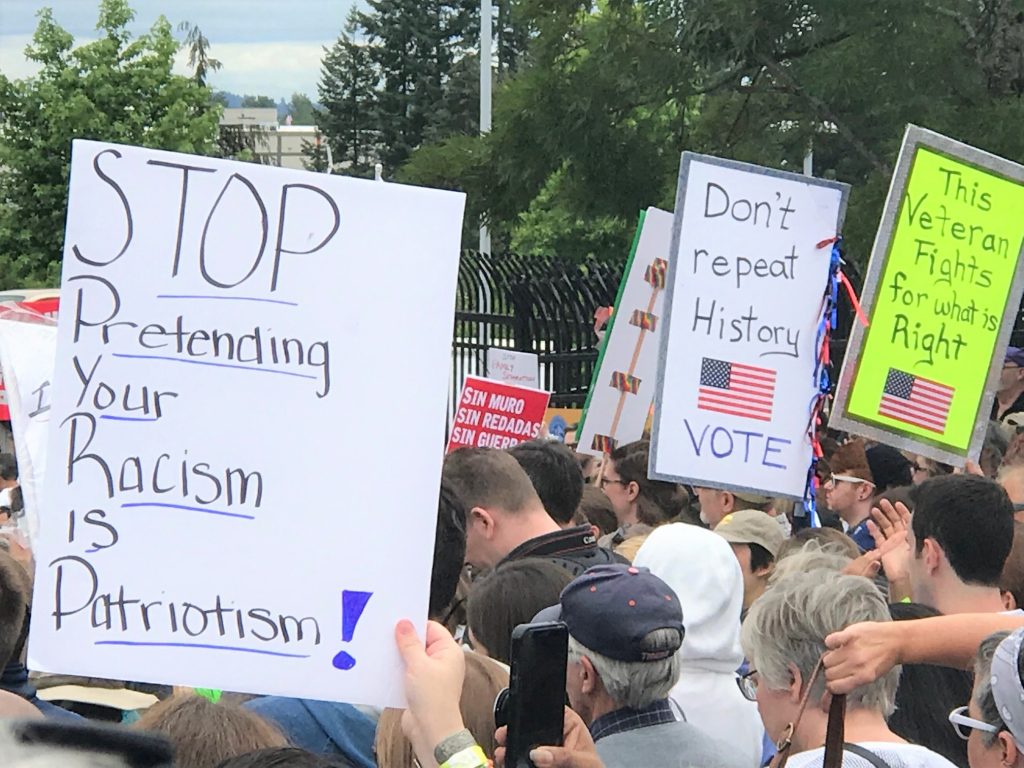
7. Most importantly: When we organize, we win: When I was despairing about the Supreme Court, colleagues pointed me to this essay called “Don’t Despair about the Supreme Court” by Howard Zinn, a historian, political science professor, and the author of A People’s History of the United States. He wrote:
“Our culture–the media, the educational system–tries to crowd out of our political consciousness everything except who will be elected President and who will be on the Supreme Court, as if these are the most important decisions we make. They are not. They deflect us from the most important job citizens have, which is to bring democracy alive by organizing, protesting, engaging in acts of civil disobedience that shake up the system.”
Although that piece was written in 2005, about the appointment of another conservative Justice, it’s still relevant today. Throughout history, in every country, it has always been people who mobilize, who protest, who rise up and demand justice that it is achieved. We need to remind ourselves this truth about democracy: Whoever organizes better tends to win, even at ridiculous odds. This is what happened in the 2016 election, but also in Alabama with Doug Jones’s upset over Roy Moore, and in Alexandria Ocasio-Cortez’s shocking recent victory in the Democratic primary in New York, and with more to come. When we organize, we win, so let’s organize.
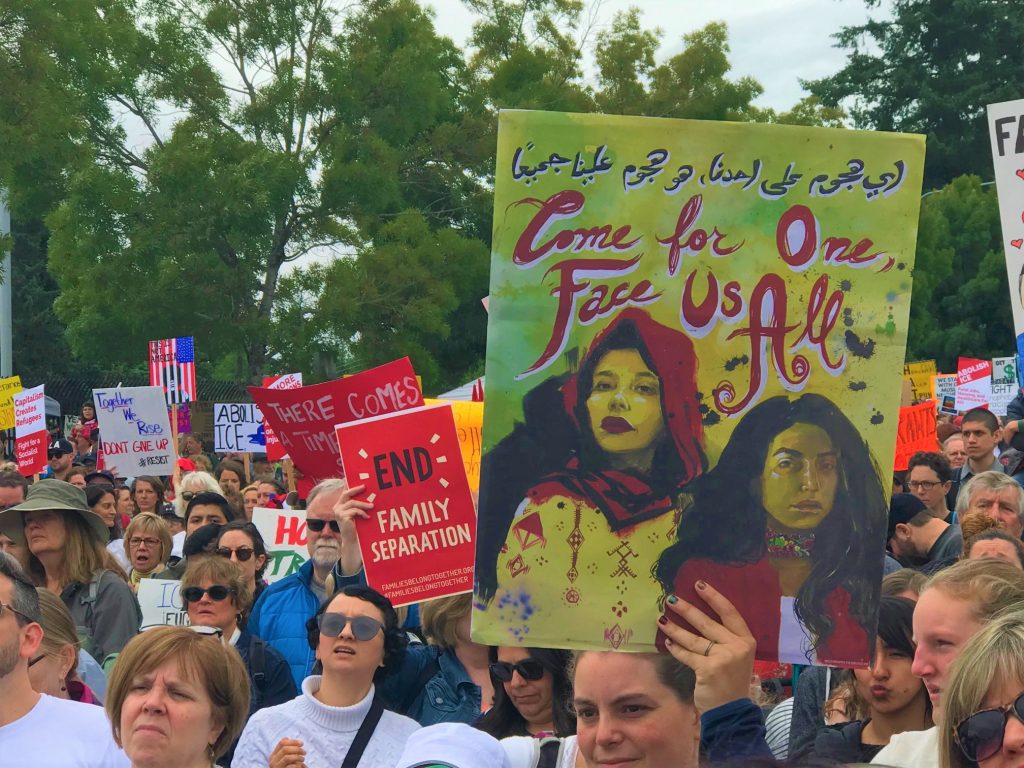
But then we all need to get back up. We need to remind ourselves that there are plenty of good things going on, that what we have been experiencing these past two years is the last dying gasps of the status quo trying desperately to fight against the inevitable future, one that is diverse, inclusive, and hopeful. We must remind ourselves also that there are many people who cannot fight, and we who can fight have a moral obligation to not be mired in sorrow, but to take action.
It will not be easy, and we will suffer more setbacks as we go along, but in the words of iconic civil rights leader Representative John Lewis, who has lived through more than his fair share of discouragement and exhaustion:
“Do not get lost in a sea of despair. Be hopeful, be optimistic. Our struggle is not the struggle of a day, a week, a month, or a year, it is the struggle of a lifetime. Never, ever be afraid to make some noise and get in good trouble, necessary trouble.”
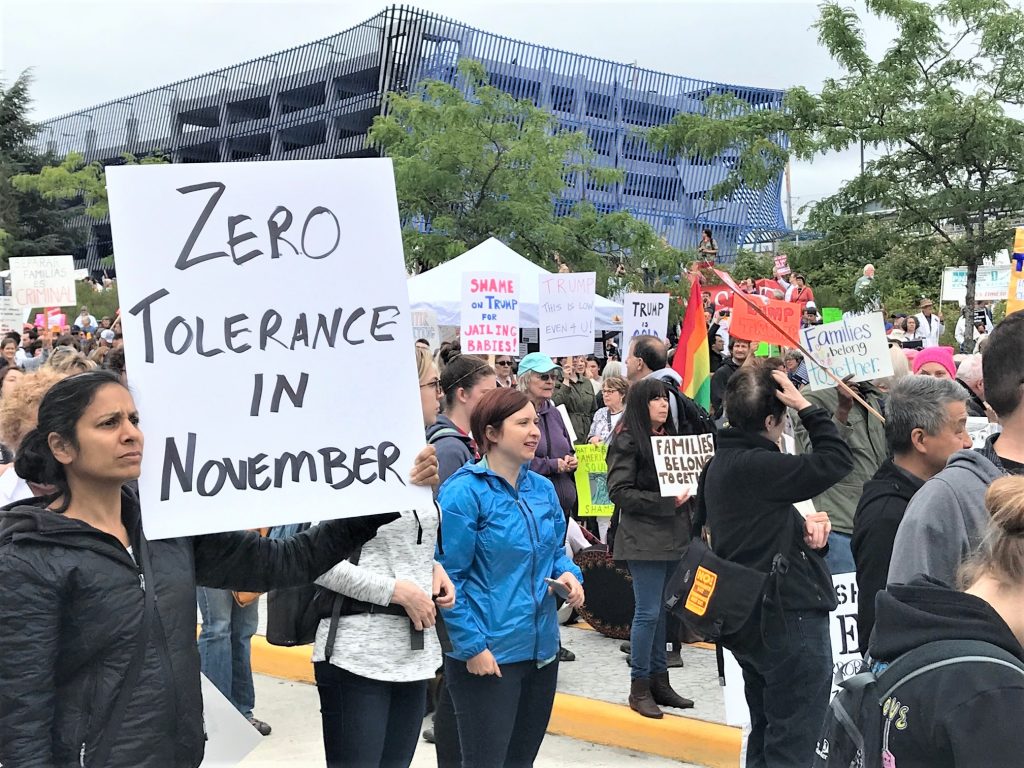
—
Be a monthly patron of NAF, and keep these posts coming.
Write an anonymous review of a foundation on Grantadvisor.org
Discover more from Nonprofit AF
Subscribe to get the latest posts sent to your email.

